ICTF Conference 2016
The 2016 ICTF Conference was held at the Saïd Business School.
| Entrance Hall | 08:15–09:25 | Registration | Tea and coffee and pastries |
| Nelson Mandela | 09:25–09:35 | Introduction | Andrew Richards, ICTF Chairman |
| Nelson Mandela | 09:35–09:45 | IT Services | Anne Trefethen, CIO |
| Nelson Mandela | 09:45–10:30 | The Internet of Things | David de Roure, Oxford e-Research Centre |
| Various | 10:30–11:15 | Breakout Session A | |
| Entrance Hall | 11:15–11:45 | Tea and coffee | |
| Nelson Mandela | 11:45–12:30 | Smart Cities | Rick Robinson, Amey |
| Various | 12:30–13:15 | Breakout Session B | |
| Entrance Hall | 13:15–14:30 | Buffet Lunch | |
| Chair: Andrew Richards, ICTF Chairman | |||
| Nelson Mandela | 14:30–15:15 | Drone 100 | Horst Hörtner, Ars Electronica Futurelab |
| Various | 15:15–16:00 | Breakout Session C | |
| Entrance Hall | 16:00–16:25 | Tea and cake | |
| Chair: ... | |||
| Nelson Mandela | 16:25–16:30 | Group Photo | |
| Nelson Mandela | 16:30–17:15 | The Rise of the Humans: How to Outsmart the Digital Deluge | Dave Coplin, Microsoft Chief Envisioning Officer |
| Nelson Mandela | 17:15–17:30 | ICTF Steering Committee Election results, close, thanks | Tony Brett, Head of IT Support Staff Services |
| Nelson Mandela | 17:30–17:40 | Prize Draw | |
| Entrance Hall | 17:40–19:00 | Fizz and nibbles reception | ... |
| The Retreat | 19:00–late | Cash bar in the upstairs room | Use code ICTF at the bar - that will get the conference a rebate on the room charge. |
Plenary Talks
The Internet of Things |
David de Roure |
|
The Internet of Things is here, with companies anticipating that they will sell millions of devices into our homes, companies, cars and bodies. On the one hand, adoption of new devices promises to enhance our lives. On the other, we know that increasing the scale and complexity of IT systems isn't going to make failure and vulnerability and less likely, or make support any easier. This somewhat dystopian talk will highlight some of the concerns, especially around the problems of cascading risks in systems which are so intimately coupled digitally, physically and socially, in the face of increasing automation. It will also introduce the recently launched IoT research hub called Petras - Privacy, Ethics, Trust, Reliability, Acceptability, and Security for the Internet of Things. |
|
Smart Cities |
Rick Robinson |
|
The way that we live, work and travel is changing, driven by astonishing advances in digital technology; both through the emergence of large-scale, sophisticated tools such as Big Data, the Internet of Things and predictive analytics, and through the increasing ubiquity and power of consumer technologies such as SmartPhones and social media. At the same time, global population growth and climate change create a now urgent need to deliver public services and infrastructure in new ways, and to transition to a more sustainable, resilient economy. As a consequence, around the country and internationally, new business models and services are emerging that harness the power of technology and the enterprise of the private sector in a way that aligns profitability with community outcomes. In this talk I’ll give some examples of the exciting projects that are emerging as a consequence, and explore how they’re shaping the future world that we’ll live in. |
|
Drone 100 |
Horst Hörtner |
|
When all 100 light-equipped drones danced and painted 3D shapes and messages in sky above Flugplatz Ahrenlohe, Tornesch, near Hamburg, Germany in early November, a new record was born.In a performance showcased by a promotional film for the world-famous chip maker, 100 spaxels took to the sky simultaneously. |
|
The Rise of the Humans: How to Outsmart the Digital Deluge |
Dave Coplin |
|
The rapid growth of internet-connected devices has brought huge advantages, however the same technology has also disconnected us. We are drowning in a digital deluge where the haze of information and devices vie for our attention to the point where they are beginning to remove us from the real world. Business leaders, meanwhile, worry that they might miss the next big technology trend and fail to realise the true potential of the big data wave. |
|
Breakout Session A |
10:30–11:15 |
||
| A1 | Digital Forensics: An unauthorised access case study | Chris Hargreaves, HARGS Solutions Ltd | |
| This session builds on last year's "Introduction to Digital Forensics" talk. This year’s talk will be based around a fictitious scenario involving an unauthorised access to a network share from a malicious insider. Using this scenario as a backdrop you will gain further exposure to some of the techniques, capabilities and limitations of digital forensics. | |||
| A2 | IT Innovation – challenges and rewards | Ylva Berglund Prytz, IT Services | |
| Create virtual versions of your bookshelves (and share these), record your lab experiments and play musical instruments on your phone. These are three examples of the 35 projects funded by the IT Innovation Challenges to date. This workshop will allow you to find out more about the scheme, discuss the open innovation process it uses, and explore how you can use the Oxford Ideas platform to run your own initiative. http://www.it.ox.ac.uk/innovation-challenges | |||
| A3 | Wearable Medical Technology | Clara Mancini, Open University | |
| Animal-Computer Interaction: Expanding the Boundaries of Interaction Design beyond Humans Animal-Computer Interaction (ACI) is an emerging discipline aiming to study the relation between animals and technology in naturalistic settings, design user-centred technology to support animals in various contexts, and inform user-centred approaches to developing animal technology. In this talk, I will introduce the research program of The Open University’s ACI Lab. Focussing on some of our projects, I will discuss the design and methodological implications arising from designing for and with animals. I will also reflect on the benefits of thinking about interaction design from an extended, multispecies perspective rather than from a merely human perspective. |
|||
| A4 | Introduction to PGP | Michael Howe, IT Services | |
| In this talk, Michael will attempt to give a whistle-stop outline of what PGP is, how it works, and, more practically, why it might be useful or relevant to you- even if you don't need to exchange encrypted information with others. It will also cover some tips around setting up your own PGP key. Please note that this session will not include keysigning. |
|||
| A5 | Oxford IT Governance | Prof. Anne Trefethen, University of Oxford | |
| Since the formation of IT Services in 2012, and the formation of the University-wide IT Strategy in 2013, there have been some major developments on how IT Governance works in Oxford, including the formation of the IT Boards, comprising academics as well as academic-related staff. In this breakout you have the chance to hear Oxford's CIO explain how things work, what has changed and what plans are for the future. | |||
| A6 | Business Relationship Management | Tony Brett, IT Services | |
| BRM is all about managing the relationships between service providers and business outcome providers within an organisation. The relationship in a college (or University) between an IT department and those delivering teaching or research is very much the sort of relationship that BRM principles can empower and optimise. The core activities of BRM are Demand Shaping, Exploring, Servicing and Value Harvesting. In that framework this talk will look briefly through the six disciplines of BRM, namely Strategic Partnering, Business IQ, Portfolio Management, Business Transition Management, Provider Domain Knowledge, and Powerful Communications. Tony will give his take on these principles and how he sees them working in real-life examples in the Oxbridge context. | |||
Breakout Session B |
12:30–13:15 |
||
| B1 | What will the GDPR do for us? | Andrew Cormack, JISC | |
| The European Community has just completed negotiation of a new General Data Protection Regulation, expected to come into force in 2018. This talk will review the changes in approach from existing legislation and the impact on specific networked services: clouds, federated access management and incident response. | |||
| B2 | Future Security Analytics at Oxford | Paul Hood and Kristian Kocher, IT Services | |
| The risk posed by cybercriminals, hacktivists and other technological adversaries increases every year, and our organisation represents a tempting, high-profile target; OxCERT and the Information Security Team are committed to meeting this threat head-on. In this workshop we will discuss our multi-pronged approach to tackling and staying ahead of this trend, including the research and development of sector-leading security monitoring technologies in the form of OxCERT's new 'SAVANT' clustered analytics engine. |
|||
| B3 | Web CMS Platform – Project Canvas | Ruth Mason and Matthew Castle, IT Services | |
| Over the last year IT Services has been developing a platform to provide research teams, departments, colleges and other users with cheap, secure and easy to manage websites based on a core platform. Come and hear why we did this, how we approached a pilot project to assess demand, and then translated this into a scalable system capable of supporting the Humanities divisional and Ashmolean websites. We will also cover how we are managing the software development with an agile approach and some of the challenges that we will face in transitioning into full service. |
|||
| B4 | Core User Directory (CUD) data integration using the CUD Receiver tool | Scott Cridland-Smith, IT Services | |
| Since January 2015, student data has been made available from SITS:Vision, via the Core User Directory (CUD) service, for use in local IT systems by colleges and departments. As part of the SITS:Vision for Colleges project, several colleges requested that the existing data integration tool shared by many CUD users (the "CUD Receiver") should be updated and brought under IT Services support. In order to achieve this, a new version of the CUD Receiver has been developed and installed by some of the colleges participating in the project. We aim to make the new version available to all colleges, including those not participating in the SVFC project, as well as University departments. The details of the support model are currently being agreed and we hope to update you at the session, as well as demonstrating the new CUD Receiver, how to request it, and how to install it. | |||
| B5 | Cost Effective High Performance Storage | David Ford, OUCE | |
| David Ford explores the technology, techniques and motivations behind the School of Geography's recent refresh of their storage solutions. The talk will explore the challenges in producing a cost-effective and cross-platform storage solution when handling many hundreds of Terabytes of data, and some of the imaginative approaches the school has taken to achieve an increased resiliency in their storage whilst at the same time reducing the marginal cost of storage expansion by researchers by almost an order of magnitude. The talk will conclude by looking at some of the new services that this enhanced storage infrastructure has enabled. | |||
| B6 | Green Impact: Greening the IT Estate | Simon Geller, University of Sheffield | |
| IT accounts for approximately 2% of the world’s carbon emissions. However, it also has potential to reduce the world’s emissions and this potential is being realised in many different areas across the IT world. What can we, as IT professionals, do to ensure that our industry is as sustainable as it can possibly be? This workshop addresses the journey that Universities need to embark on to Green the IT estate, using the NUS Green Impact initiative as the platform for change. | |||
Breakout Session C |
15:15–16:00 |
||
| C1 | A Right Ding-Dong! An introduction to an Oxford custom | Gerard Robinson, Medical Science Division IT Services | |
| Oxford Academics were amongst those who collected and rejuvenated the ancient art of Morris Dancing in the early 20th Century thereby recording what had been a purely oral tradition. It has been a regular feature of May Morning in Oxford since 1923 and there has been an (un)official OU Morris side since 1926. This will be a practical introduction to some Cotswold Morris Dances. No previous experience necessary but comfortable footwear and clothing is essential. Do visit: www.am39.com | |||
| C2 | IT Mergers Round Table | Ronald Haynes, Cambridge University | |
| Oxford and Cambridge went through dramatic changes to their IT organisations in the last few years, with Oxford leading the way by about 2 years. Like many universities, both are trying to keep up with rapid developments in IT, respond to overall changes in higher education, and appropriately relate one with the other. As leading institutions of innovative research and advanced education, neither are always entirely confident of whether their IT resourcing, provision and development is either sufficiently advanced or suitably innovative to match the rest of their institutions' requirements. This round table will provide an open, honest, and probing opportunity to share and contrast the different experiences and outcomes, and consider ways in which both might learn from each other, as well as from other institutions, in order to better address and resolve the new and persistent challenges of the newly-merged models. | |||
| C3 | Info Sec – Governance | Jonathan Ashton, IT Services | |
| Turning the tide: How to secure a collegiate University With an ocean of committees, a sea of departments, colleges, users and students, and a multitude of differing security requirements, securing a collegiate university can feel like swimming against the tide. Yet, despite the complexity, devolved nature and huge variance in security expertise and resource across the institution we are still one organisation in the eyes of our stakeholders and regulators. Not only do we need to implement a consistent level of security, we also need to be able to demonstrate it. This workshop looks at the approach the University is taking to navigating the choppy waters of information security and governance in order to provide appropriate direction, support and assurance. |
|||
| C4 | HPC sig – roundup | Andrew Richards, IT Services | |
| High Performance Computing is an increasingly essential tool utilised across a broad range of research. The Oxford HPC Special interest group was established to bring together providers of HPC and those interested in supporting HPC across Oxford in order to share and disseminate best practice. The forum also acts as a group to gather requirements that can influence provision of central services. This meeting will also discuss what HPC provision in Oxford could or should look like in 2020. |
|||
| C5 | How to innovate without everyone hating you | Chris Dixon and Tom Skarbek-Wazynski, University of Lancaster | |
| In September 2014, Lancaster University created an “Innovation Hub”, designed to raise the profile of innovation, engage with students and deliver fast and agile results. This session will give insight (and demo) into the hundreds of ideas generated, how we engaged students and staff and delivered gamification, minecraft the campus, an events management platform and lots more. | |||
| C6 | Hyping on Hyperconvergence | Several (various) | |
David De Roure |
Plenary 1 |
|
Focused on advancing digital scholarship, David works closely with multiple disciplines including social sciences (studying social machines ), digital humanities (computational musicology), computer science (large scale distributed systems and social computing) and previously sciences and social statistics. He has extensive experience in hypertext, Web, Linked Data, and Internet of Things. Drawing on this broad interdisciplinary background he is a frequent speaker and writer on digital scholarship and the future of scholarly communications. David was closely involved in the UK e-Science programme and from 2009-2013 was the UK National Strategic Director for Digital Social Research. He is a UK representative on the European e-Infrastructure Reflection Group , a board member of the Square Kilometre Array telescope Science Data Processor consortium, a partner in the UK Software Sustainability Institute and from 2011-2013 was a Research Fellow at the Graduate School of Library and Information Science at the University of Illinois at Urbana-Champaign. Prior to moving to Oxford in 2010 he was Professor of Computer Science at University of Southampton and director of the Centre for Pervasive Computing in the Environment. He is a Fellow of the British Computer Society, a Member of the Institute of Mathematics and its Applications, a Supernumerary Fellow of Wolfson College and a member of the Wolfson College Digital Research Cluster. |
|
Rick Robinson |
Plenary 2 |
|
Rick is a member of the Government’s Smart Cities Forum, a Fellow of the British Computer Society and the RSA, an Open Group Distinguished Certified IT Architect and a member of the Academy of Urbanism. He is regularly invited to present to conferences held by organisations such as the World Bank, EcoBuild, United Nations, TEDx, Commonwealth Studies Conference, Royal Institute of British Architects, Royal Institute of Town Planners and the Open Data Institute. See also: http://theurbantechnologist.com/ http://twitter.com/dr_rick/ |
|
Horst Hörtner |
Plenary 3 |
|
|
|
Dave Coplin |
Plenary 4 |
|
|
|
Breakout Sessions |
|
| Chris Hargreaves | Breakout A1 |
|
Dr Chris Hargreaves is the founder and director of HARGS Solutions Ltd, a digital forensics consultancy based in Oxford. He currently provides digital forensics education, training, and R&D for a variety of clients. Prior to starting his own company in 2016 he was a lecturer at Cranfield University based at the Defence Academy of the UK for over 7 years. He was course director for the MSc in Forensic Computing and still teaches at Cranfield as a visiting lecturer. |
|
| Ylva Berglund Prytz | Breakout A2 |
|
|
|
| Clara Mancini | Breakout A3 |
|
|
|
| Michael Howe | Breakout A4 |
|
|
|
| Anne Trefethen | Breakout A5 |
|
|
|
| Tony Brett | Breakout A6 |
|
|
|
| Andrew Cormack | Breakout B1 |
|
|
|
| Paul Hood | Breakout B2 |
|
|
|
| Kristian Kocher | Breakout B2 |
|
|
|
| Ruth Mason | Breakout B3 |
|
|
|
| Matt Castle | Breakout B3 |
|
|
|
| Scott Cridland-Smith | Breakout B4 |
|
|
|
| David Ford | Breakout B5 |
|
After very nearly 10 years in computer security and incident response, David Ford moved in February 2015 to the School of Geography and the Environment to take up the post of IT Manager. Over the past year he has overseen a major server and storage infrastructure refresh, and has begun the task of implementing a more cohesive IT infrastructure with a stronger focus on centrally managed configuration and application deployment. He enjoys finding cost effective and tailored solutions to problems, and is keen to ensure that money is spent in an efficient way that delivers the best possible service to his users. |
|
| Simon Geller | Breakout B6 |
|
|
|
| Gerard Robinson | Breakout C1 |
|
|
|
| Ronald Haynes | Breakout C2 |
|
|
|
| Jonathan Ashton | Breakout C3 |
|
|
|
| Andrew Richards | Breakout C4 |
|
|
|
| Chris Dixon | Breakout C5 |
|
|
|
| Tom Skarbek-Wazynski | Breakout C5 |
|
|
|


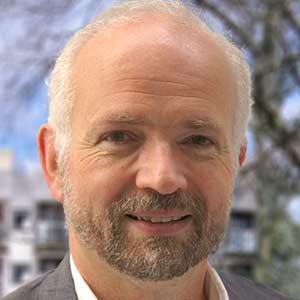 David De Roure is Professor of e-Research at University of Oxford and Director of the Oxford e-Research Centre. He has strategic responsibility for Digital Humanities at Oxford within the The Oxford Research Centre in the Humanities , collaborates in Oxford's Web Science laboratory with the Oxford Internet Institute , and is a member of the Oxford Cyber Security Centre . He is a Strategic Advisor to the UK Economic and Social Research Council in the area of new forms of data and real time analytics.
David De Roure is Professor of e-Research at University of Oxford and Director of the Oxford e-Research Centre. He has strategic responsibility for Digital Humanities at Oxford within the The Oxford Research Centre in the Humanities , collaborates in Oxford's Web Science laboratory with the Oxford Internet Institute , and is a member of the Oxford Cyber Security Centre . He is a Strategic Advisor to the UK Economic and Social Research Council in the area of new forms of data and real time analytics.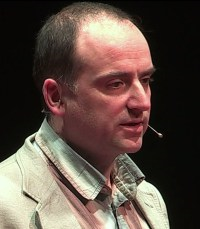 Dr Rick Robinson is IT Director for Smart Data and Technology at Amey, one of the UK’s leading public and regulated services providers. Previously, he was IBM UK’s Executive Architect for Smarter Cities. He has helped cities around the UK deliver Smart City initiatives in collaboration with urban designers, academics and policy-makers across social, economic and engineering disciplines.
Dr Rick Robinson is IT Director for Smart Data and Technology at Amey, one of the UK’s leading public and regulated services providers. Previously, he was IBM UK’s Executive Architect for Smarter Cities. He has helped cities around the UK deliver Smart City initiatives in collaboration with urban designers, academics and policy-makers across social, economic and engineering disciplines.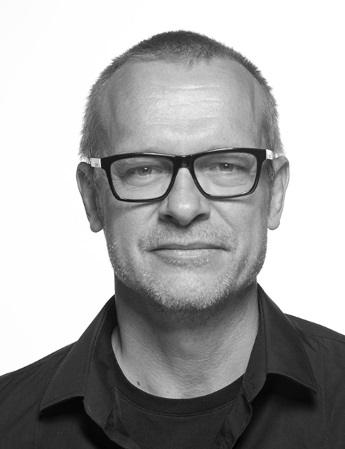 Horst Hörtner is a media artist and researcher. He is expert in design of Human Computer Interaction and holds several patents in this field. Hörtner is founding member of the Ars Electronica Futurelab in 1996 and since then directing this atelier/laboratory. He started to work in the field of media art in the 1980ies and co-founded the media art group x-space in Graz/Austria in 1990. Since 2014 the Ars Electronica Futurelab is running a P.h.D. program together with the University of Newcastle (Australia), where he is holding a position as conjoint professor. Horst Hörtner is working in the nexus of art & science and giving lectures and talks at numerous international conferences and universities.
Horst Hörtner is a media artist and researcher. He is expert in design of Human Computer Interaction and holds several patents in this field. Hörtner is founding member of the Ars Electronica Futurelab in 1996 and since then directing this atelier/laboratory. He started to work in the field of media art in the 1980ies and co-founded the media art group x-space in Graz/Austria in 1990. Since 2014 the Ars Electronica Futurelab is running a P.h.D. program together with the University of Newcastle (Australia), where he is holding a position as conjoint professor. Horst Hörtner is working in the nexus of art & science and giving lectures and talks at numerous international conferences and universities. Since joining Microsoft in 2005, Dave Coplin has worked across a wide range of industries and customers, providing strategic advice and guidance around the impact of technology on a modern society both at work and in play. As an established thought leader in the UK and having spent a considerable amount of time in both the public and private sectors providing leadership and guidance around key technology issues like Cloud Computing, Privacy, Big and Open Data, Social Media, Open Government, Advertising and the “consumerisation” of IT. Dave is currently working as the Chief Envisioning Officer for Microsoft UK, helping organisations and individuals envision the full potential that technology offers a modern, digital society.
Since joining Microsoft in 2005, Dave Coplin has worked across a wide range of industries and customers, providing strategic advice and guidance around the impact of technology on a modern society both at work and in play. As an established thought leader in the UK and having spent a considerable amount of time in both the public and private sectors providing leadership and guidance around key technology issues like Cloud Computing, Privacy, Big and Open Data, Social Media, Open Government, Advertising and the “consumerisation” of IT. Dave is currently working as the Chief Envisioning Officer for Microsoft UK, helping organisations and individuals envision the full potential that technology offers a modern, digital society.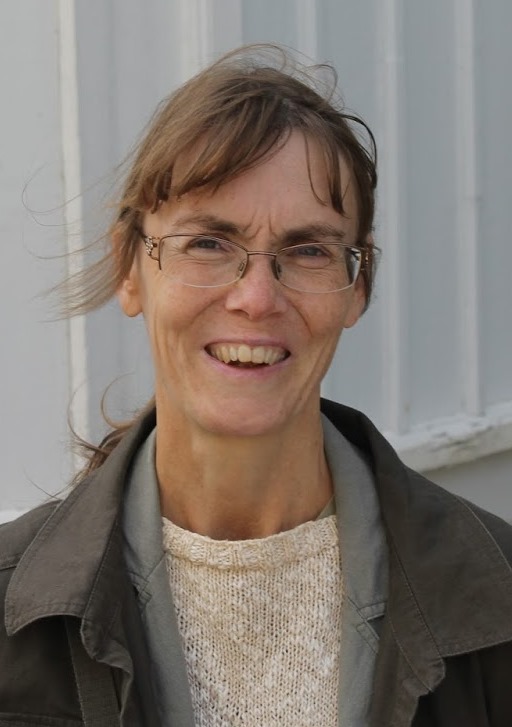 The IT Innovation Challenges uses an open innovation process to identify innovative projects which will enhance the staff or student experience at Oxford through digital means. The scheme is part of the University’s IT Capital Plan but administered by IT Services. Ylva Berglund Prytz is one of the part-time facilitators managing the day-to-day running of the scheme. She is based in Academic IT Services where she also runs the RunCoCo service, providing advice and support for those interested in crowdsourcing and community collections.
The IT Innovation Challenges uses an open innovation process to identify innovative projects which will enhance the staff or student experience at Oxford through digital means. The scheme is part of the University’s IT Capital Plan but administered by IT Services. Ylva Berglund Prytz is one of the part-time facilitators managing the day-to-day running of the scheme. She is based in Academic IT Services where she also runs the RunCoCo service, providing advice and support for those interested in crowdsourcing and community collections.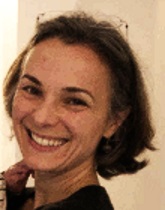 Clara Mancini is Senior Lecturer in Interaction Design and head of the Animal-Computer Interaction (ACI) Lab at The Open University. The mission of the ACI Lab is to expand the boundaries of interaction design beyond the human species. Mancini is particularly interested in the methodological challenges and innovation opportunities presented by ACI to contribute to human and animal wellbeing, social inclusion, interspecies cooperation and environmental restoration.
Clara Mancini is Senior Lecturer in Interaction Design and head of the Animal-Computer Interaction (ACI) Lab at The Open University. The mission of the ACI Lab is to expand the boundaries of interaction design beyond the human species. Mancini is particularly interested in the methodological challenges and innovation opportunities presented by ACI to contribute to human and animal wellbeing, social inclusion, interspecies cooperation and environmental restoration.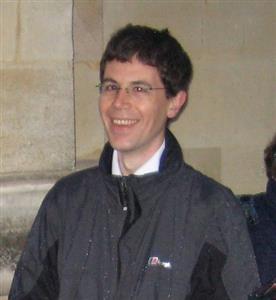 Michael is the Infrastructure and Hosting Team Leader in IT Services, responsible for the team running some of the core infrastructure (such as mailing lists and hosting for WebLearn, WebAuth, and Shibboleth, among many others). He's seen Oxford life as a student and as college ITSS before moving to IT Services, and spends some of his time explaining to people why GPG, Kerberos, SSL and similar technologies are Good Things.
Michael is the Infrastructure and Hosting Team Leader in IT Services, responsible for the team running some of the core infrastructure (such as mailing lists and hosting for WebLearn, WebAuth, and Shibboleth, among many others). He's seen Oxford life as a student and as college ITSS before moving to IT Services, and spends some of his time explaining to people why GPG, Kerberos, SSL and similar technologies are Good Things.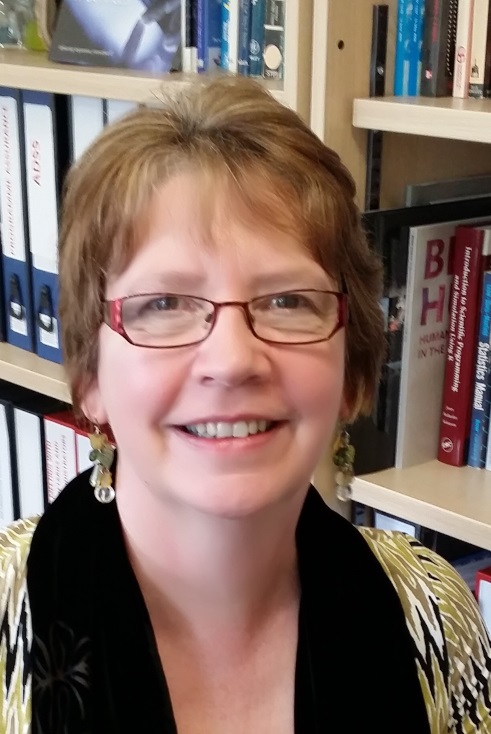 Prof. Anne E. Trefethen is the Pro-Vice-Chancellor (PVC) of the Museums, Libraries and Botanic Gardens and Chief Information Officer for the University. She is Professor of Scientific Computing and former director of the Oxford e-Research Centre.
Prof. Anne E. Trefethen is the Pro-Vice-Chancellor (PVC) of the Museums, Libraries and Botanic Gardens and Chief Information Officer for the University. She is Professor of Scientific Computing and former director of the Oxford e-Research Centre.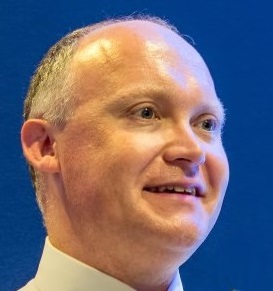 Tony started his IT career as IT Manager in Oxford University's Institute of Molecular Medicine in 1993, moving to Corpus Christi College Oxford as IT Manager in 1998 and to the University Computing Service in 2003. He was part of OxCERT, Oxford's Computer Emergency Response Team and served as Chair of Oxford's IT Support Staff Group. Tony programme-managed Oxford's ICT strategy exercise in 2006-7. Tony was Deputy Manager of the Information and Support group in Oxford University Computing Services and was responsible for the OUCS web site as well as being head of IT Support Staff Services and Software Licensing. Since the formation of IT Services in 2012 Tony is Head of IT Support Staff Services, Central Software Licensing, and the IT Services online shop. Tony served for many years as a member of the UCISA Distributed IT Support Staff Group and moved to the Support Services Group more recently. As a member of the BCS Tony has particular interest in IT provision and support in a distributed and federated environment and in formal methodologies such as ITILv3 and PRINCE2. He is currently undertaking several institution-requested IT service reviews and spends quite a lot of his time advising on IT recruitment as part of selection panels for Colleges and Departments.
Tony started his IT career as IT Manager in Oxford University's Institute of Molecular Medicine in 1993, moving to Corpus Christi College Oxford as IT Manager in 1998 and to the University Computing Service in 2003. He was part of OxCERT, Oxford's Computer Emergency Response Team and served as Chair of Oxford's IT Support Staff Group. Tony programme-managed Oxford's ICT strategy exercise in 2006-7. Tony was Deputy Manager of the Information and Support group in Oxford University Computing Services and was responsible for the OUCS web site as well as being head of IT Support Staff Services and Software Licensing. Since the formation of IT Services in 2012 Tony is Head of IT Support Staff Services, Central Software Licensing, and the IT Services online shop. Tony served for many years as a member of the UCISA Distributed IT Support Staff Group and moved to the Support Services Group more recently. As a member of the BCS Tony has particular interest in IT provision and support in a distributed and federated environment and in formal methodologies such as ITILv3 and PRINCE2. He is currently undertaking several institution-requested IT service reviews and spends quite a lot of his time advising on IT recruitment as part of selection panels for Colleges and Departments.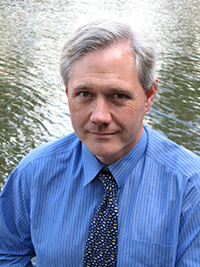 Andrew Cormack joined Janet in 1999 as Head of JANET-CERT. He is now Chief Regulatory Adviser, Jisc Technologies, informing the company and its members about regulatory and policy issues relating to the use of networked services. Having recently completed a Masters in Computer and Communications Law, he is looking forward to having his spare time back.
Andrew Cormack joined Janet in 1999 as Head of JANET-CERT. He is now Chief Regulatory Adviser, Jisc Technologies, informing the company and its members about regulatory and policy issues relating to the use of networked services. Having recently completed a Masters in Computer and Communications Law, he is looking forward to having his spare time back.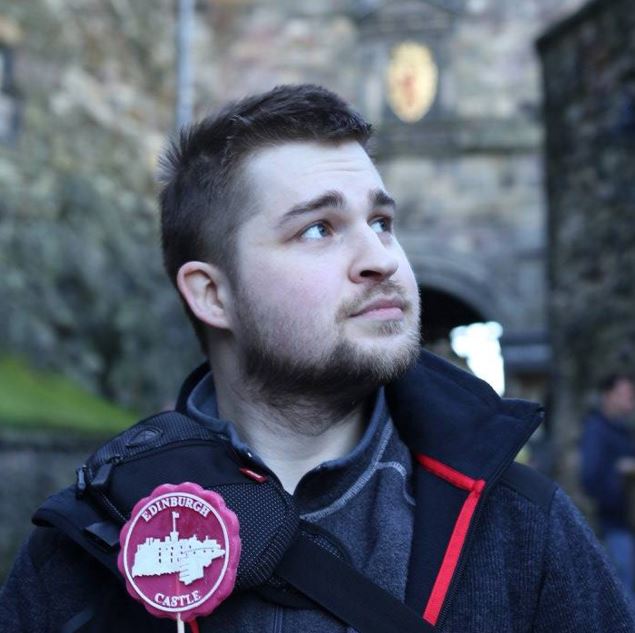 Paul is currently Security Operations Lead for OxCERT, the operational security element of the Information Security Team. OxCERT's mandate is to pro-actively defend the backbone infrastructure and the organisation's information estate. Paul joined OxCERT just over two years ago from an IT consulting background, and now focuses on development of new security technologies.
Paul is currently Security Operations Lead for OxCERT, the operational security element of the Information Security Team. OxCERT's mandate is to pro-actively defend the backbone infrastructure and the organisation's information estate. Paul joined OxCERT just over two years ago from an IT consulting background, and now focuses on development of new security technologies.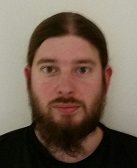 Kristian is security systems administrator for the University of Oxford network security team (OxCERT). He joined the team a year ago via the Sysdev/IAH team. Prior to that he was a system administrator at the University of Lille1 in the north of France. He is currently heavily involved in the development of the new network monitoring system and the rolling out of advanced security infrastructure.
Kristian is security systems administrator for the University of Oxford network security team (OxCERT). He joined the team a year ago via the Sysdev/IAH team. Prior to that he was a system administrator at the University of Lille1 in the north of France. He is currently heavily involved in the development of the new network monitoring system and the rolling out of advanced security infrastructure.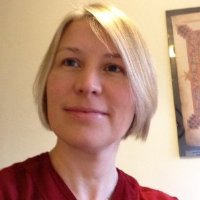 (Web Platform Team Leader) Ruth has been successfully running teams delivering websites to the University for a number of years on a variety of content management systems.
(Web Platform Team Leader) Ruth has been successfully running teams delivering websites to the University for a number of years on a variety of content management systems.  (Head of Application Development in Software Solutions) Matthew has been leading agile development teams delivering software in a number of verticals including e-commerce, financial services, and now higher education for a number of years.
(Head of Application Development in Software Solutions) Matthew has been leading agile development teams delivering software in a number of verticals including e-commerce, financial services, and now higher education for a number of years. Scott Cridland-Smith is Project Manager on the Student Systems Programme working mainly on the SITS:Vision for Colleges and Financial Support and Funding projects. He will be joined in his talk by Ben Bridle, IT Manager for Lady Margaret Hall and St Hugh’s College; and Adrian Cuthbertson, Identity and Access management team.
Scott Cridland-Smith is Project Manager on the Student Systems Programme working mainly on the SITS:Vision for Colleges and Financial Support and Funding projects. He will be joined in his talk by Ben Bridle, IT Manager for Lady Margaret Hall and St Hugh’s College; and Adrian Cuthbertson, Identity and Access management team. Simon was one of the students on the UK’s first ever Communications Studies course. However, what he hadn’t twigged was that the ICT revolution wouldn’t actually happen for 20 years so following graduation Simon worked for a Tour Operator and noted the gradual change from paperbased systems into mini computers and eventually desktop PC’s. In 1996 he started work at University of Sheffield on their new Oracle systems and has subsequently risen to Senior Project Manager. When not playing with computers Simon enjoys Cycling, Real Ale and Steam Trains so is well suited for working in an IT department.
Simon was one of the students on the UK’s first ever Communications Studies course. However, what he hadn’t twigged was that the ICT revolution wouldn’t actually happen for 20 years so following graduation Simon worked for a Tour Operator and noted the gradual change from paperbased systems into mini computers and eventually desktop PC’s. In 1996 he started work at University of Sheffield on their new Oracle systems and has subsequently risen to Senior Project Manager. When not playing with computers Simon enjoys Cycling, Real Ale and Steam Trains so is well suited for working in an IT department.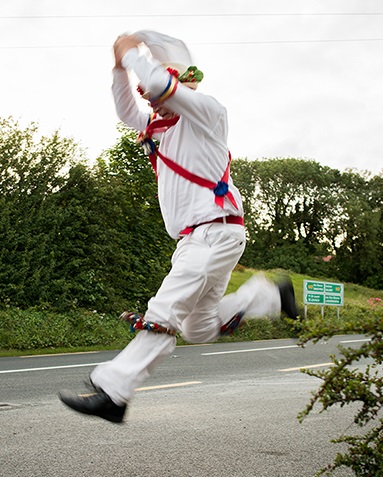 Gerard has been dancing the Morris since the mid-1970s when he first cycled 15 miles to see what happened at sunrise on May 1st at a remote earthworks in Surrey. He has been involved with Oxford University Morris Men (OUMM) since 1990 and has travelled with them as far as Japan giving performances. He is the Senior Member for OUMM which recently became an official student society.
Gerard has been dancing the Morris since the mid-1970s when he first cycled 15 miles to see what happened at sunrise on May 1st at a remote earthworks in Surrey. He has been involved with Oxford University Morris Men (OUMM) since 1990 and has travelled with them as far as Japan giving performances. He is the Senior Member for OUMM which recently became an official student society.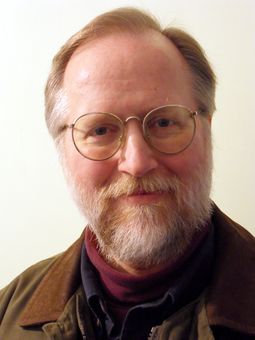 Ronald has been part of academic ICT in the US and UK, including as University of Bristol's first Webmaster, later Computer Manager for Selwyn College Cambridge, Deputy IT Manager for Cambridge's Cavendish Laboratory, and then moving to Cambridge's University Information Services (via the former Computing Service). Having helped found Cambridge's College IT Management Group (CITMG) and the Departmental IT Group (DITG), he remains active in supporting both groups' goals of mutual support and shared solutions. As part of an Institutional Strategy team - involving liaison, consultancy, professional and community development support - he has a particular focus on collaborative systems as a part of new technologies for unifying communications, including via web conferencing and related technologies. He is a member of BCS, ACM, Computer Society, IEEE.
Ronald has been part of academic ICT in the US and UK, including as University of Bristol's first Webmaster, later Computer Manager for Selwyn College Cambridge, Deputy IT Manager for Cambridge's Cavendish Laboratory, and then moving to Cambridge's University Information Services (via the former Computing Service). Having helped found Cambridge's College IT Management Group (CITMG) and the Departmental IT Group (DITG), he remains active in supporting both groups' goals of mutual support and shared solutions. As part of an Institutional Strategy team - involving liaison, consultancy, professional and community development support - he has a particular focus on collaborative systems as a part of new technologies for unifying communications, including via web conferencing and related technologies. He is a member of BCS, ACM, Computer Society, IEEE. Jonathan leads the Governance Risk and Compliance (GRC) team within the University’s Information Security Team. Having previously worked for OxCERT responding to incidents, he is now responsible for trying to prevent them and leads the development and delivery of the governance, risk management and compliance elements of the information security strategy.
Jonathan leads the Governance Risk and Compliance (GRC) team within the University’s Information Security Team. Having previously worked for OxCERT responding to incidents, he is now responsible for trying to prevent them and leads the development and delivery of the governance, risk management and compliance elements of the information security strategy.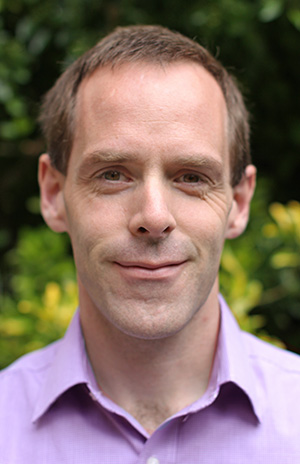 Dr Andrew Richards is Head of Advanced Research Computing, which is part of Academic IT in IT Services.
Dr Andrew Richards is Head of Advanced Research Computing, which is part of Academic IT in IT Services.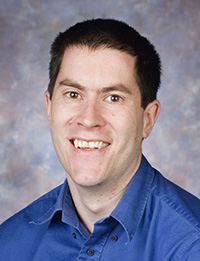 Chris Dixon is Head of Service Delivery and Operations at Lancaster University and heads up the Innovation Hub which consists of two full time staff plus student developers, as well as owning the iLancaster mobile phone application platform. Chris was formally a developer, nuclear power plant worker and enjoys flying light aircraft.
Chris Dixon is Head of Service Delivery and Operations at Lancaster University and heads up the Innovation Hub which consists of two full time staff plus student developers, as well as owning the iLancaster mobile phone application platform. Chris was formally a developer, nuclear power plant worker and enjoys flying light aircraft.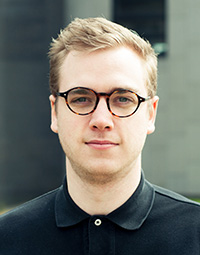 Tom is the (Lancaster University) Innovation Hub’s developer, who is responsible for delivering solutions to Innovation Hub lead projects. He is an experienced designer and developer having worked across a multitude of industries as well as previously founding several successful startups.
Tom is the (Lancaster University) Innovation Hub’s developer, who is responsible for delivering solutions to Innovation Hub lead projects. He is an experienced designer and developer having worked across a multitude of industries as well as previously founding several successful startups.
